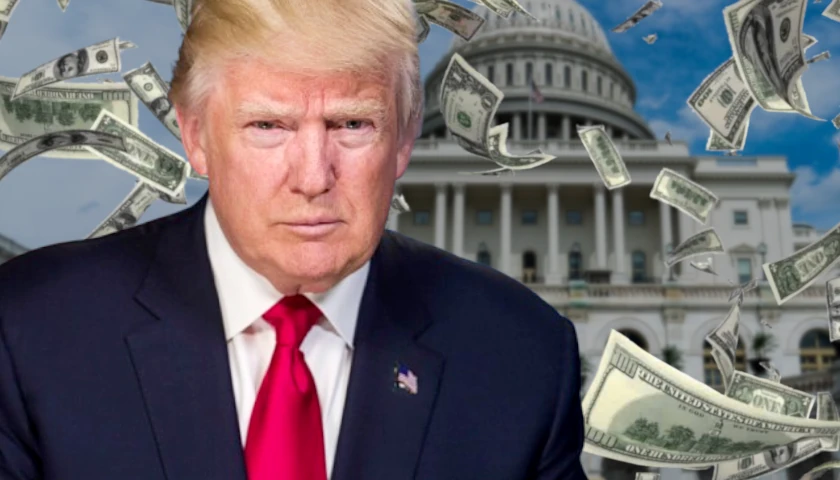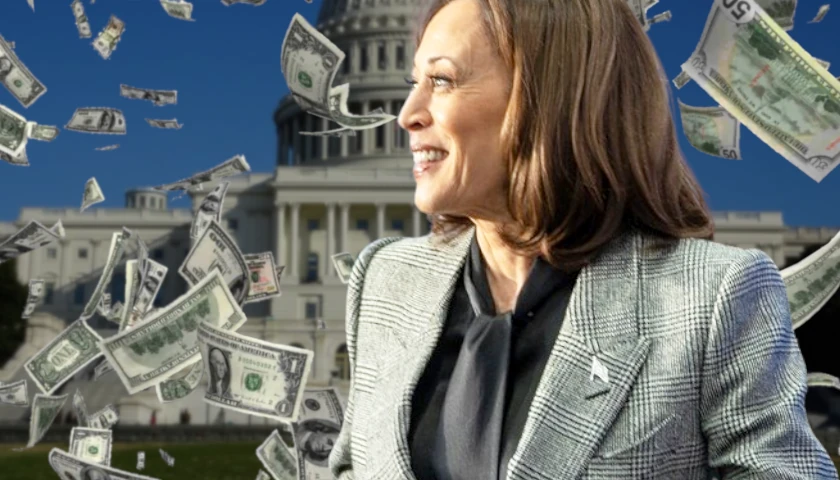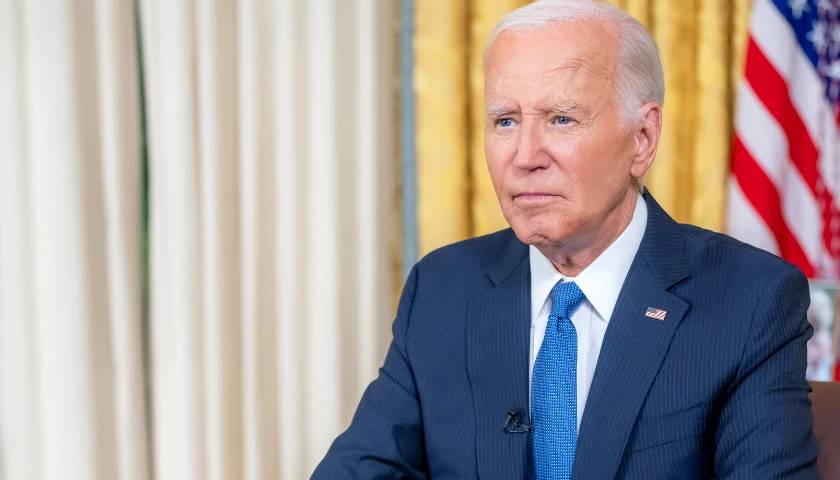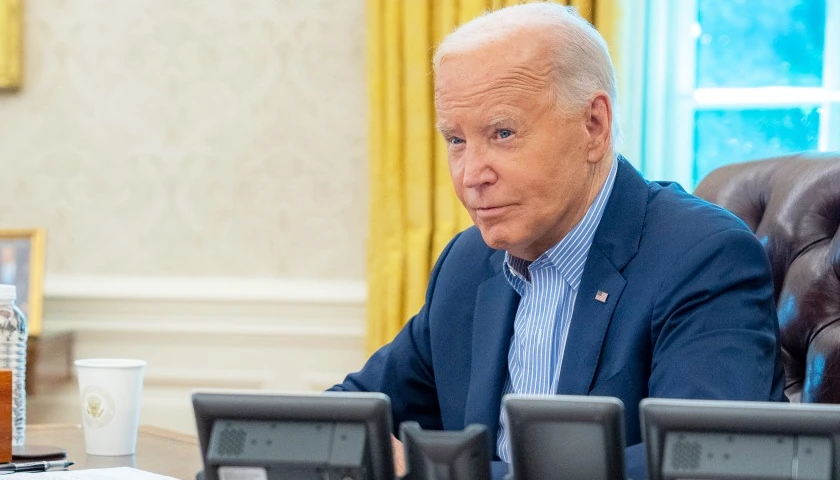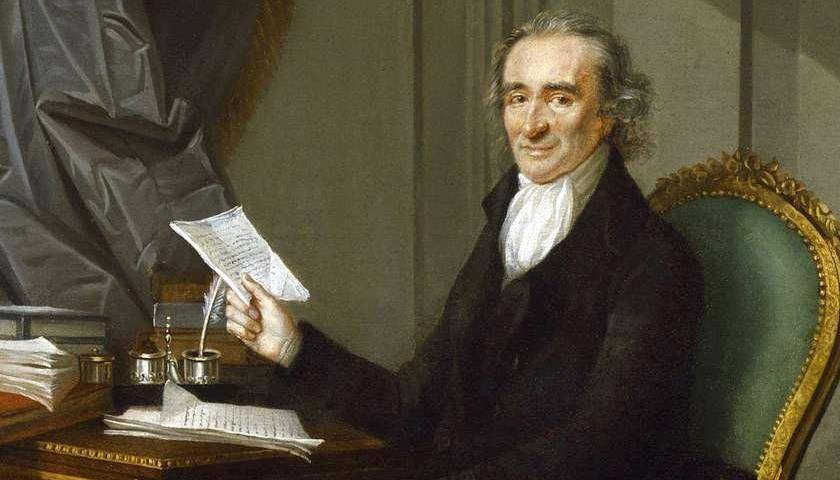President-elect Donald Trump and Vice President-elect J.D. Vance on Thursday slammed the continuing resolution before Congress and told Republicans to call Democrats’ bluff on a government shutdown.
Read MoreTag: American People
Commentary: Trump Vows to Slash Government Bureaucracy as Public Trust in Government Craters
President-elect Donald Trump just announced his sweeping plan to slash the size of the federal government through a new government agency run by businessmen Elon Musk and Vivek Ramaswamy.
The temporary agency, which Trump has named the Department of Government Efficiency (DOGE), will be tasked with slashing government bureaucracy, ending nonsensical regulations, and cutting wasteful expenditures, initiatives the American people appear all too happy to see put into action.
Read MorePushback on VP Kamala Harris’ Tax Proposal Plan Grows as Costs Are Counted
Vice President Kamala Harris’s tax proposal plan is getting significant pushback from Congress members and others as the costs of tax hikes on the American people across the political spectrum are being examined.
Upon a closer look at Harris’s tax proposals, an economist, a New York Times reporter, a small business owner advocate, and members of Congress all voiced their concerns over what the plan entails. Most of them note how the economy will be negatively impacted by her plan and the real-world implications for everyday Americans.
Read MoreCommentary: President Biden – A Single Point of Failure for America
On Sunday, President Joe Biden made the appropriate decision to drop out of the 2024 presidential race amid pressure and a soft coup attempt from Democrats. While dropping out, Biden, our sitting commander-in-chief, hid in Delaware for almost a week without being seen by the American people, prompting “proof of life” demands. Unfortunately, this past week is not the first time this has happened before – Joe Biden has been missing in action for the last four years as our country has been falling apart around him.
As a retired Navy SEAL and former Marine, I’ve had the honor and duty of serving this country in some of the most challenging and dangerous situations imaginable. Our missions demanded precision, adaptability, and unwavering leadership. Any failure, any gap in our planning or execution, could cost lives. That’s why it is deeply troubling to see the current state of leadership under President Biden, who has become a “single point of failure” as our commander-in-chief. His weakness continues to put America in grave danger as our enemies seek to capitalize from America’s missing leader.
Read MoreCommentary: President Biden Must Resign, or Be Impeached
President Biden’s duty to the American people is to “faithfully execute” his office. As a public trustee, Biden took an oath to do what is right. He is a trustee of powers bestowed upon him by the Constitution in return for his promise to be dutiful.
Like every agent and trustee, Biden owes fiduciary duties to those who are served by his decisions. He owes them two duties: the duty of always acting with due care; and the duty of giving them his absolute loyalty, always putting their interests above his own.
Read MoreCommentary: Stanford, Silicon Valley, and the Rise of the Censorship Industrial Complex
This summer the Supreme Court will rule on a case involving what a district court called perhaps “the most massive attack against free speech” ever inflicted on the American people. In Murthy v. Missouri, plaintiffs ranging from the attorneys general of Missouri and Louisiana to epidemiologists from Harvard and Stanford allege that the federal government violated the First Amendment by working with outside groups and social media platforms to surveil, flag, and quash dissenting speech – characterizing it as mis-, dis- and mal-information – on issues ranging from COVID-19 to election integrity.
The case has helped shine a light on a sprawling network of government agencies and connected NGOs that critics describe as a censorship industrial complex. That the U.S. government might aggressively clamp down on protected speech, and, certainly at the scale of millions of social media posts, may constitute a recent development. Reporting by RCI and other outlets – including Racket News’ new “Censorship Files” series, and continuing installments of the “Twitter Files” series to which it, Public, and others have contributed – and congressional probes continue to reveal the substantial breadth and depth of contemporary efforts to quell speech that authorities deem dangerous. But the roots of what some have dubbed the censorship industrial complex stretch back decades, born of an alliance between government, business, and academia that Democrat Sen. William Fulbright termed the “military-industrial-academic-complex” – building on President Eisenhower’s formulation – in a 1967 speech.
Read MoreCommentary: America’s Last Stand Is the Most Important Book in America
Nearly two and a half centuries ago, the 18th-century American colonists were confronted with a choice: whether or not to continue living their lives as British subjects and supporting the crown or to sever their ties with Great Britain and declare their independence. The choice may seem obvious and easy today, but at the time—circa 1776—a great many colonists were hesitant to choose freedom, and others even supported the crown. They needed persuading.
Fortunately, a virtually unknown immigrant named Thomas Paine felt compelled to persuade the American colonists to choose freedom. His pamphlet, Common Sense, was published on January 10, 1776, and its influence cannot be overstated. It was read by the modern equivalent of 15 million people at the time and provided the fuel the colonists needed to choose independence.
Read More
